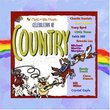| All Artists: Frederic Chopin, Artur Rubinstein Title: Rubinstein Collection, Vol. 29 Members Wishing: 0 Total Copies: 0 Label: RCA Original Release Date: 1/1/1953 Re-Release Date: 8/7/2001 Album Type: Box set, Original recording remastered Genres: Dance & Electronic, Classical Styles: Chamber Music, Forms & Genres, Fantasies, Historical Periods, Classical (c.1770-1830), Modern, 20th, & 21st Century, Instruments, Keyboard Number of Discs: 1 SwapaCD Credits: 1 UPC: 090266302925 |
Search - Frederic Chopin, Artur Rubinstein :: Rubinstein Collection, Vol. 29
 | Frederic Chopin, Artur Rubinstein Rubinstein Collection, Vol. 29 Genres: Dance & Electronic, Classical
|
Larger Image |
CD DetailsSimilar CDs |
CD ReviewsFidelity to the Score vs. Freedom with the Score Hank Drake | Cleveland, OH United States | 09/13/2001 (4 out of 5 stars) "For those accustomed to Rubinstein's well-known 1963 version of Chopin's Waltzes, this mono version, unavailable for some 40 years, will come as something of a shock. The difference between the two performances is as different as night and day. The 1953 version is notably freer, with greater use of rubato throughout, especially at phrase endings. Tempos are marginally faster here than in 1963, and again there are more tempo changes between sections. Which version is best? That depends on the listener's view of Chopin. Personally, I would not want to be without either version. As with the Waltzes, the Fantasie, op. 49 is very different in this 1957 version than in Rubinstein's 1962 stereo remake. Somewhat less cohesive structurally, this performance nevertheless has pride of place for its rhythmic drive, gripping drama, and stunning virtuosity.The Barcarolle is somewhat sectionalized compared with Rubinstein's later stereo version. As with the Waltzes, the pianist uses more rubato here. But this performance is not as successful because the Barcarolle is less suited to such an approach than the Waltzes.This version of the Berceuse was one of Rubinstein's earliest stereo solo recordings, made in 1958. The pianist's treatment of the repeating motif, and its right hand embellishment is marginally freer here than in his final recording of the piece from 1962.The mono sound has been smoothed over, and the sonority is not as hard as in some of Rubinstein's recordings from this period, although it remains somewhat dry. The stereo Berceuse sounds fine, with adequate space around the piano." Definitive: Rubinstein's 1953 recording of Chopin's Waltzes Carlton | CT, USA | 11/03/2008 (5 out of 5 stars) "I have at least two dozen recordings of Chopin's wonderful waltzes. But, Rubinstein's 1953 reading is by far the best. What elegance, grace, style and panache! Rubinstein brings these pieces alive with a vibrancy that remains unequaled.The Grande Valse Brilliante Op 18 is full of vitality. The Op 34 n 1 in A-flat is imbued with an exuberance and poignancy few achieve. In the climax Rubinstein is resplendent. The A Minor Waltz Op 34 n 2 provides quite a contrast to its predecessor and successor. Rubinstein conveys the depths of the composer's dispair amid his inextinguishable hopes and dreams. The F Major Waltz is performed perfectly with blithe humor and a touch of pathos. The so called "Two - Four" Waltz of Op 42 is nothing short of spectacular. Rubinstein brings this work to an incredible climax. The Minute Waltz, Op 64 n 1, is a joy. The C-sharp minor Waltz Op 64 n 2, one of Chopin's most heart-felt works, is crafted beautifully. The Op 64 n 3 in A-flat receives its most distinctive treatment in Rubinstein's hands. The posthumous Waltzes receive exceptional attention also.
The only other recording that can be considered a close second is Rubinstein's 1964 recording. It's slightly more autumnal and lacks the verve of the 1953 offering. I know many will point to Dinu Lipatti. But, his recordings do not have the degree of sophistication, grace or pathos inherent in Rubinstein's performances. Many also hold Alexander Brailowsky in high esteem. His 1959 recording of the waltzes for Philips is his best; far better than the Columbia recording of 1960. Yet, technically and interpretively it does not match Rubinstein. If you must own one recording of Chopin's Waltzes, this is it. " |

 Track Listings (17) - Disc #1
Track Listings (17) - Disc #1
